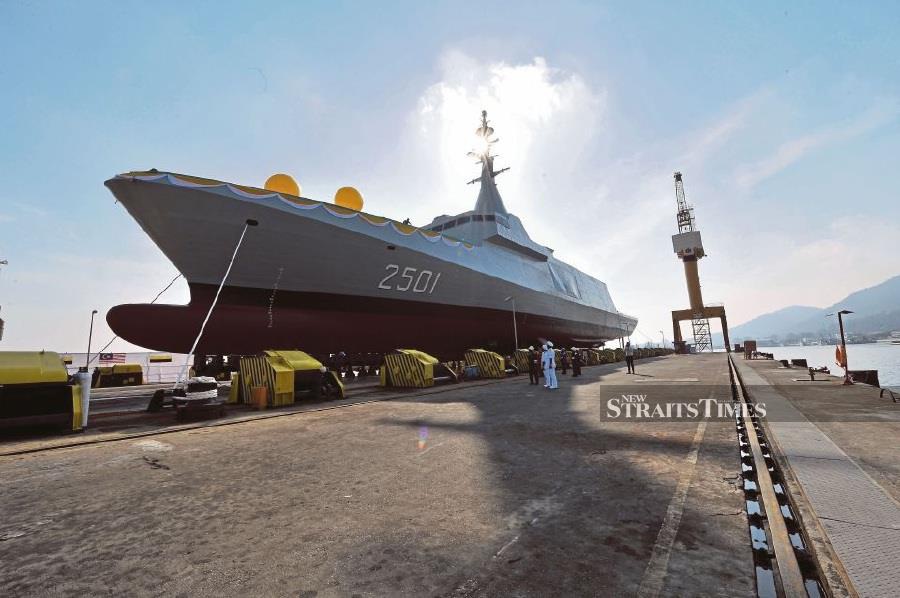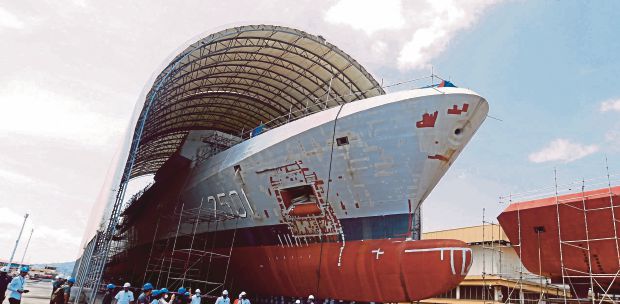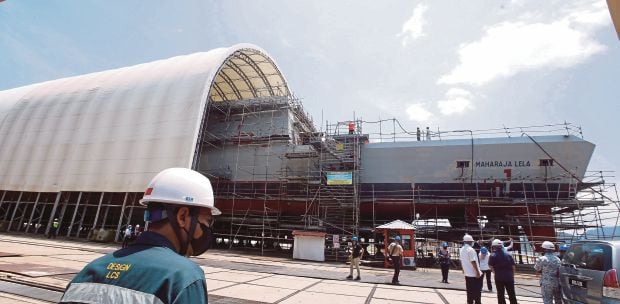So we have come to this. Embezzlement ad nauseam. Talk about replicating. The long chapter on the 1Malaysia Development Bhd (1MDB) scandal hasn't even ended and salvos are being fired at another look-alike: the RM9 billion Royal Malaysian Navy's Littoral Combat Ship (LCS) project fiasco.
Remember SRC International Sdn Bhd? According to media reports, only 13 per cent of the work was done, but some RM9.4 billion, or 90 per cent, was paid out. What a scandal. As for LCS, Putrajaya was similarly happy to pay RM6 billion, with no combat ship delivered.
Small wonder Malaysia is condemned to be a bottom feeder in corruption perception indexes. What ails Malaysia? Well, many things.
First, we have leaders who lack integrity. If 1MDB is any barometer, corruption has reached the highest office in Putrajaya. Others below either help him embezzle or turn the other way, afraid of consequences. Not that there weren't politicians or public servants with integrity. There were, but they were either silenced, transferred or sacked.
This is why the 1MDB scandal was kept under wraps for so long. Even our Parliament didn't get to hear it until the Public Accounts Committee had a chairman from the opposition. But the buck shouldn't just stop there.
Malaysian voters are equally at fault, our second thing of the many things wrong in Malaysia. We keep electing shady characters to high office. Not only do we send them to Putrajaya with celebratory pomp and splendour, but to state capitals, too, to rule and reign over us.
Consider the recent by-elections in Melaka and Johor. Never in the history of this nation did court clusters campaign for their party as they did in the two southern states of the peninsula recently. What's worse, voters were all ears when they spoke at rallies there. What a story to write home about. Peculiar peninsula.
Third, political parties keep such court clusters in leadership positions, signalling to the country that they are Putrajaya-bound. Should we wonder why our public coffers run dry as quickly as they are filled? We would have thought Putrajaya would worry about such things.
But, no, it would rather fret over the RM8 billion that it is spending on subsidies. True, subsidies are not sustainable. But at least most of it goes to the deserving, unlike the billions from 1MDB, SRC and now the LCS. We ask the nation: pockets of the poor or thieves? We tell the political parties and voters alike to remember this: Malaysia will pay dearly for generations to come if they, too, shirk their responsibility to choose wisely.
The government procurement process, our final reason, also makes it easy for kleptocrats to go for an easy steal. When things are not transparent, money meant for projects go into the pockets of wayward politicians and other kleptocrats.
Absent transparency, a RM10 billion project quietly gets inflated to RM100 billion, the RM90 billion being payment to be shared among kleptocrats and errant contractors. PAC and Auditor-General reports, if they surface the leakages at all, are after the fact.
Just look at how difficult it is to recover the money lost to the kleptocrats of 1MDB, though a thief or two have been charged and sentenced in different jurisdictions. There is a simple answer. Make the public procurement process transparent.
Remember, what you see is what you get. Like in politics, so in procurement: never let the fox guard the henhouse.





